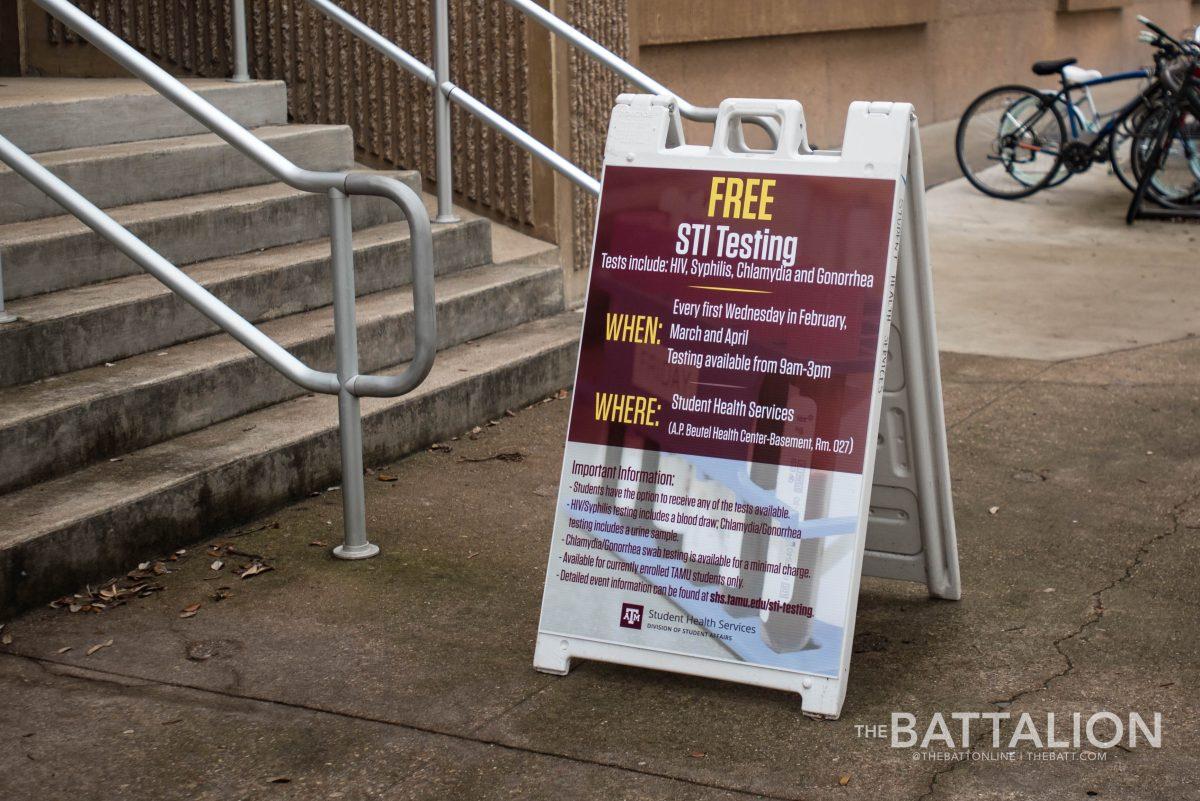Student Health Services is offering sexually transmitted infection testing every first Wednesday of the month, starting tomorrow from 9 a.m. to 3 p.m. in the AP Beutel Health Center basement, Room 027.
Blood testing for human immunodeficiency virus infection (HIV) and syphilis, along with urine tests for chlamydia and gonorrhea are free, while throat and rectal swabs for chlamydia and gonorrhea are $30 each. Any charges incurred will be transferred to the patient’s student account.
SHS Medical Laboratory Administrator Jo Ann Culpepper helps organize the event and collect test samples. She said students should not feel embarrassed to get tested because it will only benefit them.
“We just think that chlamydia and syphilis and all of the STIs that we’re testing for are very rampant in the age group population — not just on our campus, but a lot of places,” Culpepper said. “We hope that a lot of people who wouldn’t get tested because maybe they can’t do it financially or for some other reason, they would feel good enough to come in and have it done.”
Before the fall 2018 semester, SHS held their free STI testing program quarterly. Last semester, they changed it to the first Wednesday of every month to make it easier for students to remember.
Specimen testing can take anywhere from 14 to 28 days. The test results will be available through the SHS Patient Portal two weeks after the event.
“If the results are positive, then the medical staff will work with you to get your prescription, point you towards the right direction if you don’t want to come here, and so there’s a follow-up,” Culpepper said.
SHS registered nurse Sydney Snowden said symptoms of chlamydia and gonorrhea include burning during urination, vaginal/penile/anal discharge, itching, pain with sex and lower abdominal pain. The first symptom of syphilis is a painless sore on the genitalia that will usually go unnoticed by the infected individual. Early symptoms of HIV can resemble a viral infection like the flu. Snowden recommends that those at high risk for HIV get tested once or more per year. Students can determine their risk at wwwn.cdc.gov/hivrisk/.
“While some Sexually Transmitted Infections have symptoms, most infections go unnoticed and are only detected through screenings,” Snowden said. “The most important thing is to test at least once a year for all common STIs.”
Not getting tested and treated for STIs can lead to consequences. Gonorrhea and chlamydia can cause pelvic inflammatory disease and long-term damage to reproductive organs, possibly causing infertility, Snowden said. Long-term untreated syphilis, although rare, can cause neurological damage. An HIV infection can lead to acquired immune deficiency syndrome (AIDS), making it more likely for a patient to develop infections and certain virus-causing cancers.
Snowden said students should be doing more than just getting tested once per year. Additional steps include getting a yearly physical, getting the HPV vaccine Gardasil-9 and talking with their doctor about their sexual habits and risk for HIV.
“Even if you don’t think you need it, or have only been with one partner, [testing] is still recommended,” Snowden said. “Condom use is key to preventing STIs. If you don’t like traditional male condoms or don’t know how to use them, please visit the clinic for additional resources. There are many different options for STI prevention and contraception.”
Students should prepare for testing by bringing a form of personal identification and by filling out the appropriate paperwork beforehand, including a patient questionnaire, consent form and a testing form. The paperwork can be found at shs.tamu.edu/sti-testing.
Promoting students’ sexual health
February 4, 2019
Photo by Photo by Annie Lui
Free STI Testing will be available in A.P. Beutel Health Center the first Wednesday of February, March and April.
0
Donate to The Battalion
$2065
$5000
Contributed
Our Goal
Your donation will support the student journalists of Texas A&M University - College Station. Your contribution will allow us to purchase equipment and cover our annual website hosting costs, in addition to paying freelance staffers for their work, travel costs for coverage and more!
More to Discover










